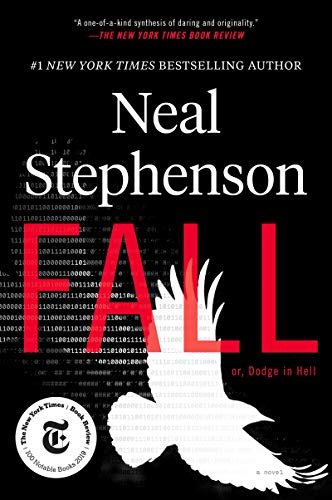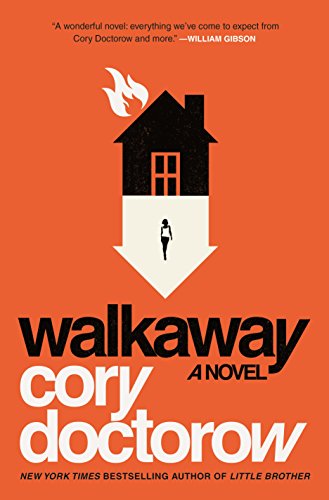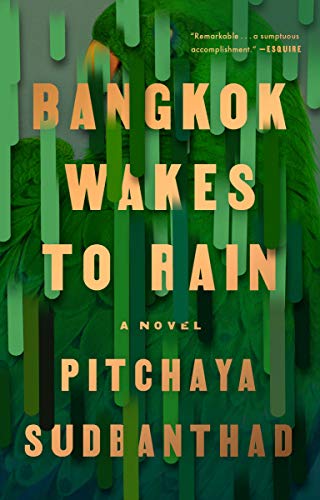I read three novels in the past year and a half that explored the concept of a digital afterlife. I had been aware it was a plot point in Neal Stephenson’s Fall: or, Dodge in Hell but was surprised to see it come up in the other books as their descriptions did not indicate that post-humanism would be relevant to the story. This provided three contrasting views of our flesh-free future.

Fall; or, Dodge in Hell
In the sequel to his novel REAMDE Neal Stephenson explores an idea of the afterlife in which you are digitized when you die and are respawned (to use a video game term) in a digital realm that was created by its earliest inhabitants.
In the story a tech visionary starts a foundation whose promise is that one can pay to have their brain scanned upon their death and the digital construct of said brain will be inserted into the digital world that the foundation has created.
What follows is Stephenson’s creation story as the world these digital souls inhabit is built and shaped by its earliest inhabitants. The foundation didn’t make the land, mountains, rivers, or wildlife. Rather we get a rather tedious version of Genesis as Dodge builds the virtual earth out of nothing and decides how to rule over his creation and its inhabitants.
How this afterlife works for people who are not God-level leaves a lot to be desired in my humble opinion. Your brain scan does not capture your memories so you enter the virtual world as a baby enters the the real world–a clean slate with some attributes or strengths that may have been developed during life. (In one example a character constructs an elaborate harness and fan system that he stayed in 24-7 which helped him develop flying-like instincts. He became a bird in the afterlife.)
What I found disagreeable about this scenario is that so much of humanity’s worst history is mirrored. People are born into this world with defects and made to serve a narcissistic ruler who seeks to maintain his absolute grip on power. Rather than going to a “better place” this afterlife is one of fear, hardship, and servitude.
There is no information sharing between the real world and this realm. People cannot talk to the digital world’s inhabitants or vice versa. The real world is eventually able to deduce the movements of the digital world’s inhabitants based on network traffic but cannot influence events there.
Of the three books this was also the only one that really explored the idea of the computational and electrical power required to run the realm.
(The digital afterlife was the least interesting part of this book to me. The novel was published in 2019 and seemed to prophesize the social unrest the gripped America in 2020 as a result of the Covid-19 crisis and protests following George Floyd’s killing. The setup at the beginning of the novel was of an America that was fractured into two: a rural America that gets their news from their Facebook feed and an urban America that pays people to individually curate their news. AIs are creating vast amounts of misinformation and in both cases people only see the media that reinforces their existing world view.
Sadly, that intriguing scenario only existed to provide a minor visual reference to the town that one of the characters grew up in. It had no real impact on the story.)

Walkaway
In Walkaway (which I reviewed here) your brain is scanned and still interacts with the living. When the brain is scanned it becomes an AI of sorts that retains all of its memories at the time it is scanned. A lot of effort goes into solving the issue with the severance of brain and body as the brain goes into a panic mode and shuts down without having sensory input. What ends up happening is a sort of continuous deployment scenario where the brain is continually rebooted until a set of parameters are found in which it can exist without crashing.
At first the scanning is only done when someone is on their deathbed but eventually becomes something that people do periodically to ensure they have a fallback in case of an accidental death.
The way the digitized people interact with the real world is through a sensor and speaker setup that the person’s family and friends carry around (or have built into their homes). This provides a sense that a person is not dead–they just no longer have a body.
The novel does not go into the digitized people interacting with each other in a digital world that is separate from the real world but it does say that they can communicate.

Bangkok Wakes to Rain
Bangkok Wakes to Rain beautifully weaves its narrative–which centers around a building in Thailand–across many lives and lifetimes. It is a thread which sews together a missionary doctor, a military coup, an elderly mother, a petulant middle-aged son, a jazz pianist, a young boy on the streets, the middle-class seeking something more, and the reflections on our past we all have as we age into the future.
Pitchaya Sudbanthad does a great job transporting us to this place where we can see and smell the transformations the city goes through. However, the story thread ended up being stretched too thin as he does a better job with the portrait of the place than he does with the tale of the people who inhabit it. The characters just were not that interesting which left us with a story that felt forced and a bit of a chore to get through.
At the end, the novel transitioned from an account of a city’s history to a prognostication of humanity’s future. One of the characters works on a system of drone cameras that digitize the world as it stands for use in this digital realm they create for people to enter when they die (here–possibly due to healthcare improvements–it seems to be a life decision as to when you decide to transition). Every building gets scanned and can be visited (I’m picturing the ground level of Microsoft Flight Simulator 2020) and you can pick the time in history (I assume it only goes back to the start of the scanning) so that you can for instance, visit the park you proposed at on the day you got engaged.
There is a cost to enter this digital afterlife (it isn’t specified but it is something that you need to save for) and it sounds like there is digital property that you purchase to reside in.
The interesting thing about this realm is that the living can pay to enter a pod VR-type neural link pod which places them digitally into the world so they can visit their relatives and provide them updates on their grandchildren. So, this realm exists in parallel to the real world and has one-way visitation and information flow.
Which afterlife is best?
In summary, the three different digital afterlives are:
- A digital realm where the its inhabitants (the dead) cannot communicate with living humans.
- The dead being digitized and communicating with living humans in the real world.
- A digital ream where the dead reside but can be visited digitally by living humans.
If I was forced to choose between these three afterlives the third would be the one I would most care to inhabit. The first was too dystopian and you lose your sense of self as you enter a blank slate. The second seems ideal at first glance–you don’t really die and get to stay with your loved ones–but I think the spectre of death is important in how it forces certain life choices upon us. Additionally, living forever sounds exhausting. (To be fair, in Doctrow’s novel you don’t have to stay living. You can store a digital copy of your scan to be booted up at a later date.)
In theory the third afterlife sounds best. You are freed from worldly constraints and can conjure up any place, time, or activity you please. However, because it sounds like the digital property is finite, and what property you have is a result of what resources you have while living, this may not be the ideal for everyone. If there was an expansionary aspect to the available “land” and resources then maybe an economy forms that enables the digital dead to improve their eternal life. Without that ability this afterlife would be by the rich for the rich.

